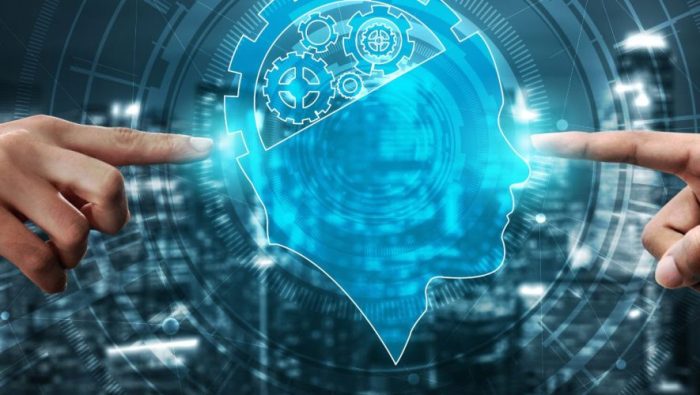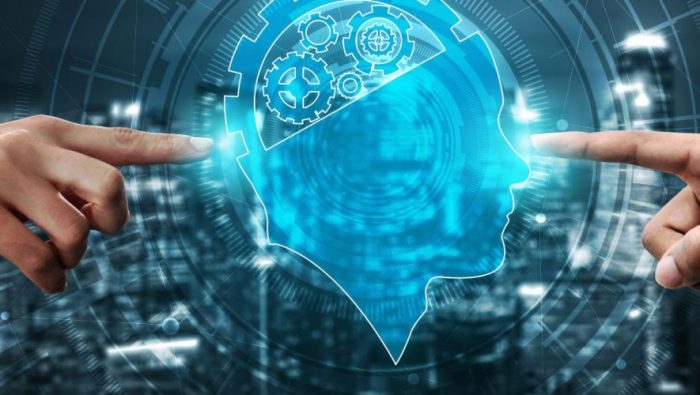How unilever is harnessing ai to innovate your favourite products – How Unilever Is Harnessing AI to Innovate Your Favorite Products – Imagine your favorite ice cream, laundry detergent, or personal care products, all enhanced by the power of artificial intelligence. This is the reality Unilever is creating, leveraging AI to understand consumer needs, optimize product development, and personalize experiences like never before.
Unilever, a global consumer goods giant, is embracing AI as a key driver of innovation. Their strategy goes beyond simply adopting AI tools; it’s about integrating AI into every stage of product development, from understanding consumer trends to creating sustainable solutions.
AI in Product Personalization
In today’s data-driven world, Unilever is leveraging AI to personalize product offerings and experiences for its consumers. This involves tailoring products, marketing campaigns, and even customer service interactions to individual preferences, creating a more relevant and engaging experience.
AI-Powered Personalization Technologies
Unilever utilizes various AI technologies to personalize its products and services. These include:
- Recommendation Engines:These algorithms analyze vast amounts of consumer data, including past purchases, browsing history, and demographics, to predict what products a customer might be interested in. Unilever’s Dove brand, for example, uses recommendation engines to suggest personalized product bundles based on skin type and concerns, enhancing the customer experience and increasing sales.
- Targeted Advertising:AI enables Unilever to deliver targeted ads based on individual preferences and behaviors. This ensures that consumers see ads relevant to their interests, leading to higher engagement and conversion rates. For instance, Unilever’s Axe brand might target young men with ads for its new deodorant based on their online browsing behavior and demographics.
- Personalized Content:AI can personalize website content, emails, and social media posts based on individual preferences. This ensures that consumers receive information relevant to their needs and interests, leading to a more positive experience. Unilever’s Knorr brand, for example, might personalize its website content based on a user’s dietary restrictions or preferences, offering relevant recipes and product recommendations.
Examples of AI-Powered Personalization
Unilever has successfully implemented AI-powered personalization in various ways:
- Personalized Product Recommendations:Unilever’s online stores leverage AI to suggest personalized product recommendations based on a customer’s past purchases, browsing history, and demographics. This ensures that customers see products relevant to their needs and interests, increasing the likelihood of a purchase.
- Targeted Marketing Campaigns:Unilever uses AI to personalize marketing campaigns based on individual preferences and behaviors. This involves segmenting its audience based on factors such as age, gender, location, and interests, and tailoring messages accordingly. This ensures that consumers see ads relevant to their needs and interests, leading to higher engagement and conversion rates.
- Personalized Customer Service:Unilever’s customer service teams are using AI-powered chatbots to provide personalized support to customers. These chatbots can understand customer queries and provide relevant information or solutions, improving the customer experience and reducing wait times.
AI for Sustainable Innovation: How Unilever Is Harnessing Ai To Innovate Your Favourite Products

Unilever, a global consumer goods giant, recognizes the urgency of addressing environmental and social challenges. They’re leveraging AI to develop sustainable products and packaging solutions, making significant strides in their commitment to a more responsible future.
Optimizing Resource Usage
AI is helping Unilever optimize resource usage across their supply chain, from raw material sourcing to manufacturing and distribution. By analyzing data on production processes, transportation routes, and energy consumption, AI algorithms identify areas for improvement and suggest solutions to minimize waste and resource depletion.
- Predictive Maintenance:AI-powered predictive maintenance systems analyze sensor data from machinery to anticipate potential failures, allowing for timely repairs and preventing costly downtime. This reduces energy consumption and extends the lifespan of equipment.
- Supply Chain Optimization:AI algorithms analyze historical data and real-time information to optimize transportation routes, reduce delivery times, and minimize fuel consumption. This reduces carbon emissions and improves logistics efficiency.
- Resource Allocation:AI-powered systems can analyze demand patterns and forecast future needs, enabling Unilever to allocate resources more effectively and reduce overproduction or waste.
Reducing Waste, How unilever is harnessing ai to innovate your favourite products
Unilever is employing AI to reduce waste at various stages of their operations, from product design to packaging and consumer usage. By analyzing data on product performance, consumer behavior, and environmental impact, AI helps them identify opportunities to minimize waste and promote circularity.
- Packaging Optimization:AI algorithms analyze consumer feedback and market trends to optimize packaging design, minimizing material usage while maintaining product quality and functionality. This reduces packaging waste and lowers environmental impact.
- Waste Management:AI-powered systems track and analyze waste generation across different facilities, identifying patterns and opportunities for improvement. This allows Unilever to optimize waste segregation, recycling, and disposal processes, minimizing landfill waste.
- Product Design:AI algorithms analyze consumer preferences and product performance data to design products that are more durable, repairable, and recyclable. This extends product lifespan, reduces waste, and promotes a circular economy.
Promoting Eco-Friendly Practices
Unilever is harnessing AI to develop and promote eco-friendly products and practices, contributing to a more sustainable future. By analyzing consumer preferences and environmental data, AI helps them develop products that meet both consumer needs and environmental standards.
- Sustainable Product Development:AI algorithms analyze data on raw material sourcing, manufacturing processes, and product performance to develop products with a lower environmental footprint. This includes identifying alternative, sustainable materials and optimizing production processes to minimize energy consumption and waste.
- Consumer Education:AI-powered chatbots and virtual assistants provide consumers with information on sustainable practices and product choices. This empowers consumers to make informed decisions and adopt more environmentally friendly behaviors.
- Environmental Impact Assessment:AI algorithms analyze data on product lifecycle, from raw material extraction to end-of-life disposal, to assess the environmental impact of products and identify areas for improvement. This helps Unilever prioritize sustainability in product design and development.
Check what professionals state about wind turbines need critical end of life planning and its benefits for the industry.





